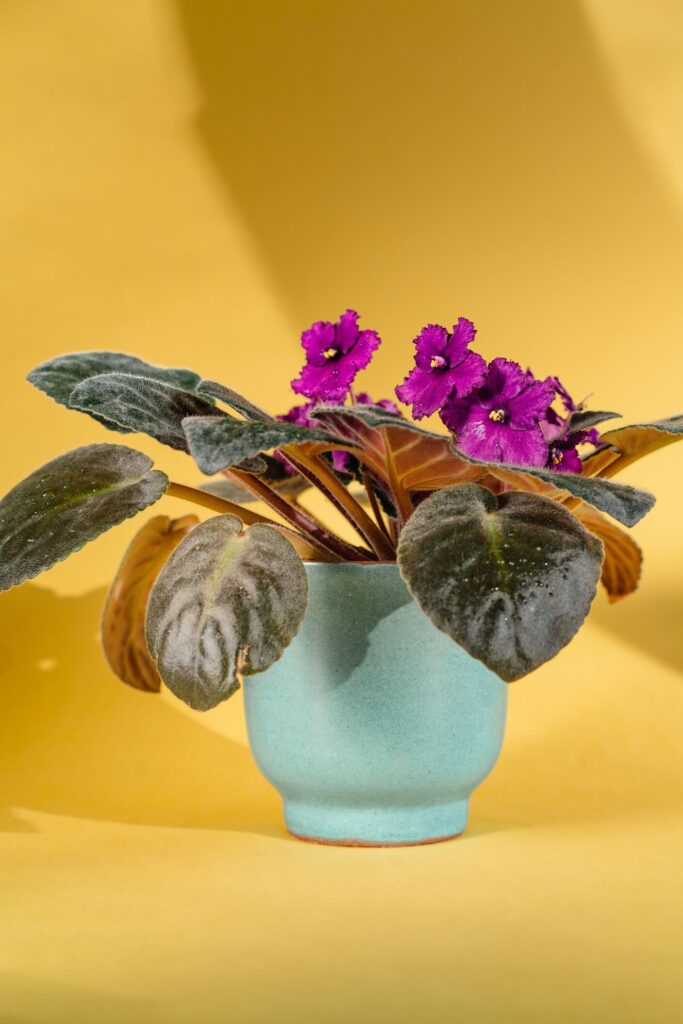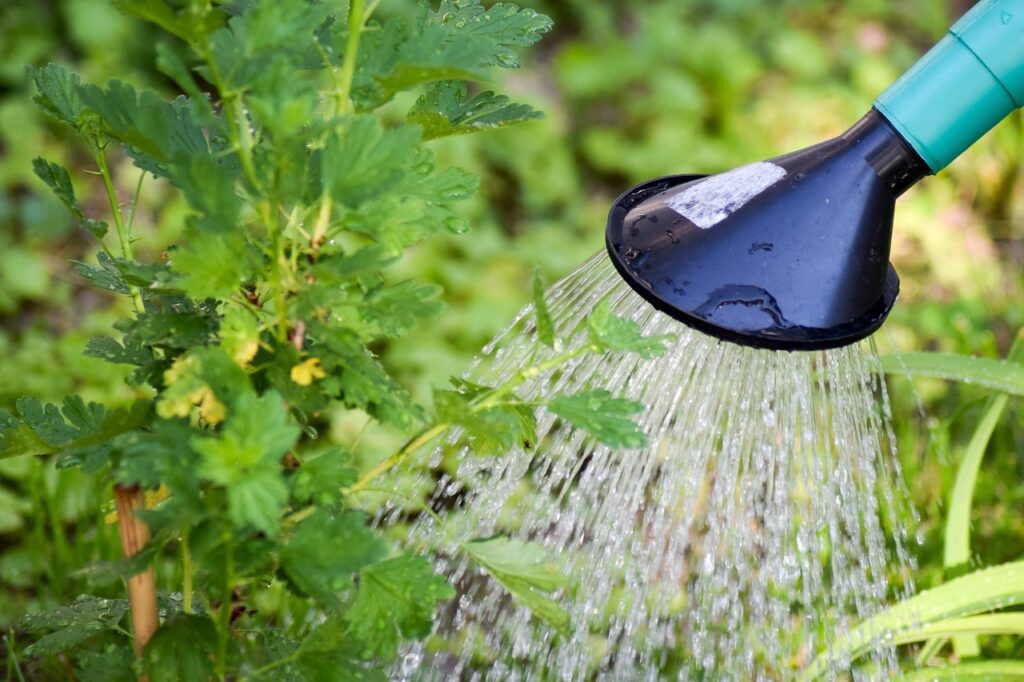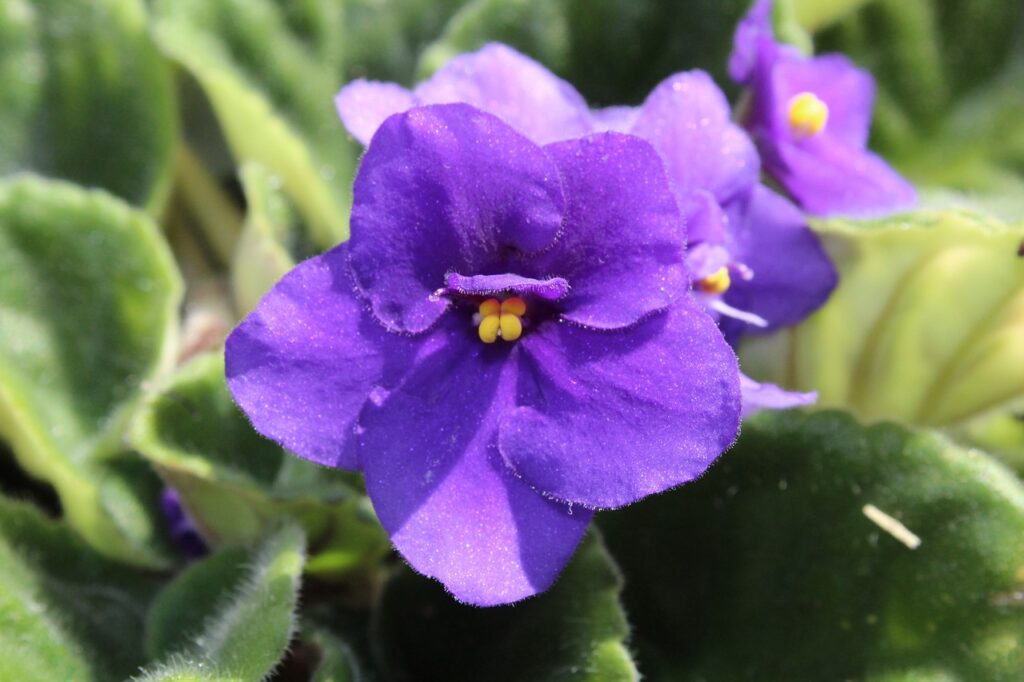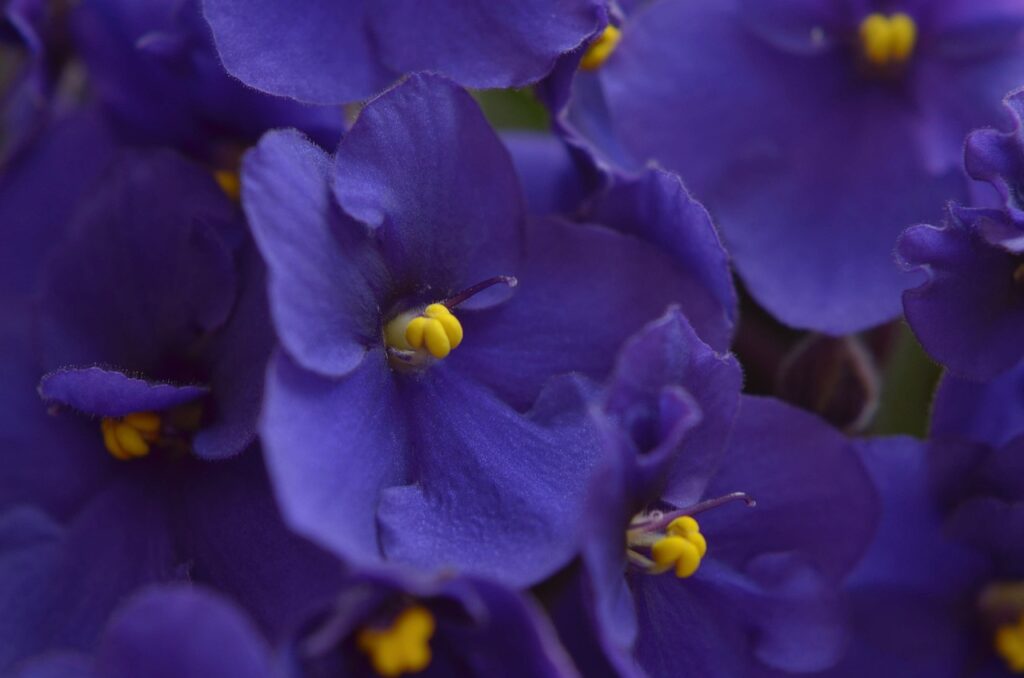The leaves of an African violet are not only attractive but also have a lot of uses. When the African violet leaves start turning yellow, it is only logical to worry and immediately wants to find a treatment for your beloved plant. In this article, you will learn what causes this problem to occur in your plant and the proper ways to treat it.

Why does the African violet leaves Start Turning yellow?
Many little things that you overlook or take for granted can cause the yellowing of your African violet leaves. One of the main causes of this problem in your plant is an insufficient or excessive amount of certain things, such as water, light, and nutrients. Pests and old age can also cause your plant’s leaves to change color.
Improper Watering
African violets are very picky about how they are watered. The plant’s leaves are very sensitive; they dislike water droplets and have a high chance of turning yellow if you are watering your plant from above. It is important to water your African violets very close to the soil itself to avoid this issue.

They are also very sensitive to the temperature of the water given to them. African violets have delicate leaf cells that tend to break down when they are exposed to cold or hot water, which eventually results in yellow patches.
Lighting
African violets require light just like all other plants do. However, both too much and too little sunshine can result in yellow leaves and a struggling plant. They undoubtedly require a lot of sunshine to properly develop, but it is also important to try and keep them out of direct sunlight. Even though it is a fact that African violets do require a lot of light, it is also important to note that direct sunlight can cause their leaves to burn and turn them yellow or brown.
Poor Soil Conditions
The leaves of an African violet can also turn yellow due to poor soil conditions. For them to thrive properly, they need more than the regular potting soils used indoors. This is due to the fact that regular potting soil is too heavy for them and is unsuitable for an African violet’s growth.
African violets become problematic if they are left in the same pot for years. It is important to replant your African violet. Soils deteriorate with time, and it will become a challenge for your plants to properly get the water and minerals that they need.
Ways to Prevent African Violet Leaves to Turn Yellow
You do not need to panic if your African violet leaves suddenly turn yellow. There are a lot of ways you can treat them.
Here are some examples:
Improper Watering
Use a watering can with a long, slender spout as one way to be able to direct the water precisely where you want it so that it is kept off your African violet’s leaves. You should also avoid applying water to your African violets when they are either too hot or too cold. The abrupt change in temperature may cause damage to the plant’s leaf cells, which will ultimately lead to its leaves yellowing.
A stream of water straight from the faucet is okay to use, but if it is above or below room temperature, wait a little while and wait for the water to settle down to room temperature before watering your plant.
Lighting
It might be challenging to know exactly where to put your African violets to ensure that they will thrive. The leaves will gradually turn yellow if they have not received enough sunlight and can also burn if they are exposed to too much sunlight. So the chances of your African violets blooming or not depend on how well you choose the site where you plant them.

It is advisable to place it on a window facing west or south so that it receives the required amount of sunlight that it requires. Using shutters can also help shield your plant from the sunlight during the hottest hours of the day.
Poor Soil Conditions
To keep your African violet healthy and prevent them from getting yellow leaves, make sure you are using the right kind of soil, and don’t forget to repot frequently. African violets grow best in light, quick-draining soil mixtures.
Since African violets grew in tiny containers, it means that they can quickly outgrow the pot that has been planted. This is why it is very important to repot them, usually every 6 months or so that they can have access to a much bigger amount of soil. And if you find this a hassle, at the very least, you can repot your plant every time you notice that it is slowly becoming root-bound.
Should you remove yellow leaves from African violets?
Yellow leaves should always be removed to keep a plant healthy. The health of your entire plant can be badly affected if the yellow leaves are not removed. Removing damaged leaves helps facilitate new growth and allows the surviving ones to spread out a little more. When cutting the leaves, also remove dead or dying blossoms to free up even more energy for your African violets.
How often should I water African violets?
You can water your African violets once a week. However, the best guide for watering your plant is just to feel the top of the soil. Water immediately if it feels dry to the touch and postpones watering if it is currently moist. This helps prevent underwatering and overwatering, which result in many complications for your plant.
Conclusion

African violet leaves turning yellow does not always cause alarm. It is extremely simple to treat and prevent the spread of this disease. The very important thing to do is to determine if the cause of their leaves turning yellow is natural or if it is a sign that something is not right with your plant.

Elizabeth Mcmillan is a passionate gardener with a strong interest in plants. She used to be a teacher, but Elizabeth has spent the last few years immersing herself in the world of plants, learning about their biology and cultural value and trying out different ways of growing them in her own garden. Elizabeth Mcmillan loves indoor plants, succulents, and cacti, and her friends and family know her as a plant care expert.







